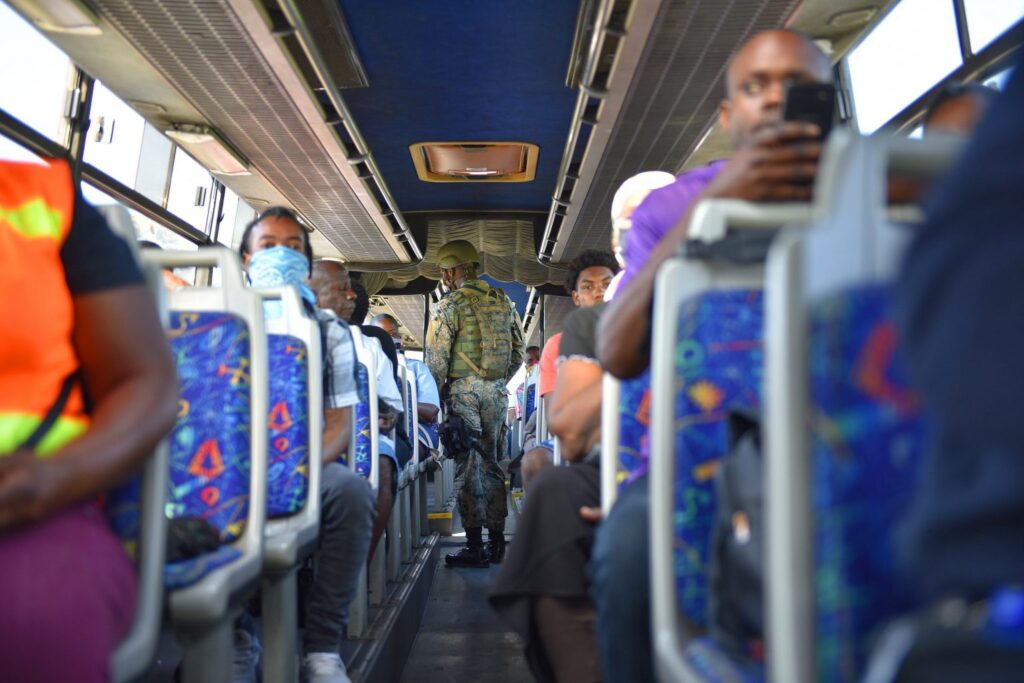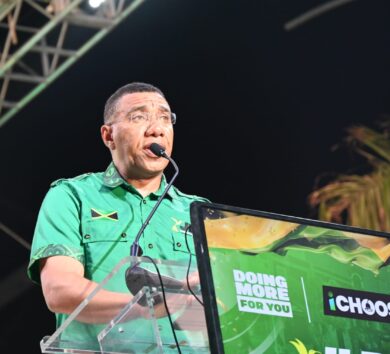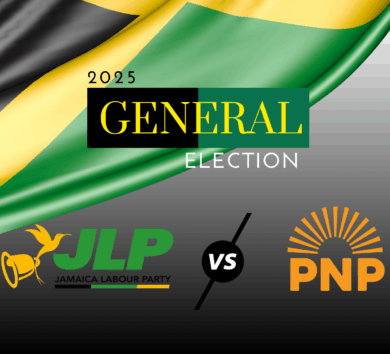

By Makhulu
This is a real precarious time for Jamaican Prime Minister Andrew Holness and his government.
The coronavirus (COVID-19) is out of control, with infections across the island increasing daily. There is now a positivity rate of 40 per cent.
Hospitals are at breaking point and pretty soon will be unable to accommodate patients.
Crime is worrisomely rising with murders ahead of where they were this time last year.
Finding adequate numbers of vaccine dosages is proving problematic and Jamaica has to depend on the largesse of India.
The dollar is again depreciating against the greenback and is now over J$150 to US$1. The economy is contracting, and unemployment is on the rise.
Then there is the fiasco with the Amber Group’s JamCOVID app and website which seems to be breached every four days despite assurances that it will not happen again and that it can meet rigorous security tests.
It now begs the question whether the government can push ahead with its NIDS legislation in a timely fashion.
Let’s face it, the government is overwhelmed and seems incapable of making sound decisions to safeguard the welfare of its citizens. It is preoccupied with seeing to it that the economy can function, choosing to put livelihoods ahead of lives. Contrast its approach with countries like Ireland, New Zealand and Barbados.

Barbados’ Prime Minister Mia Mottley is demonstrating why she is considered the Caribbean’s most capable and astute leader, locking down the country, making the citizen’s health welfare the top priority and sourcing adequate vaccine supplies. She has even shared vaccine doses with other Caribbean countries in the true spirit of what CARICOM should be about.
All this while Jamaica flounders. It’s true what they say – the worse decision is indecision.
Let’s compare and contrast two countries firstly, New Zealand.
New Zealand’s Prime Minister Jacinda Ardern said on Saturday that the country’s biggest city, Auckland, will go into lockdown for seven days from Sunday after a case of the variant of the virus was discovered. This decision was taken quickly and comes after the city of two million people underwent a lockdown just two weeks ago.
Public venues will remain closed and restrictions in other parts of New Zealand will be tightened to Level 2 including limits on public gatherings. New Zealand has managed to control the spread of the virus, putting in place and enforcing social distancing protocols. It has seen just over 2,000 cases of coronavirus since March of last year.
New Zealand has a population of five million, two million more than Jamaica.

Ardern has said that COVID kills people, hence the measures taken to protect New Zealanders and save their lives and livelihoods. She is calling on testing to curtail potential spread. People are not allowed to go to work until they are given the all-clear from their tests.
“We need people to stay home to break the chain of transmission. If you can work from home, please do. You should only be leaving your home for essential reasons such as going to the supermarket,” she said.
She quickly identified that her country was dealing with a more transmissible strain. Here you see Ardern putting the welfare of citizens ahead of all other considerations and seeing to it that the virus does not destabilise the country, allowing it to return to a semblance of normality post haste. In order to do this, citizens must be civic-minded and see the greater good. It is difficult to go this route if people just do as they please with wanton abandon and the government remains reticent in enforcing compliance.
An undisciplined society never prospers.
The Prime Minister of Barbados Mia Mottley asks a salient question, one that Andrew Holness would do well to ask of his government. I think if he is honest, he would arrive at the same answer.
Explaining why Barbados decided to go back into lockdown, Mottley said: “We are going to require a little more time to do what has to be done. This is not an easy decision that we’ve had to make. I met with my finance and economic team and I asked a simple question: Can this country withstand any further extension of the period of pause or stop as we’re now hearing from our public health officials? The simple answer from the finance and economic team is “yes”, we will be hurt by any further extension but it will not kill our economy and it will not collapse our economy.”

It is fair to say that Barbados is even more dependent on tourism and that Jamaica has more economic drivers – agriculture, manufacturing, entertainment, BPO, finance and can withstand this temporary shock. The goal has to be getting on top of the virus and significantly reducing its spread.
The coronavirus positivity rate has moved from 25 per cent to 40 per cent in less than two weeks. The healthcare system is under siege. The first lockdown imposed last year was effective in curbing the spread so why not put it into effect again?
The government needs time to see that enactments are working and should go back into lockdown immediately until just after Easter and then make an assessment as to how the country is doing and whether cases of infections are receding.
This move will also allow them to better manage the escalating crime situation, with a heavier police and military presence also ensuring social distancing and other edicts are adhered to. This will also provide a reprieve for the beleaguered healthcare sector, allowing it valuable time to attend to other ailments and illnesses.
It can use this time to make a concerted effort to source vaccines and fast track more doses from COVAX and other sources.
Those who have begun inoculation in Jamaica’s tourism source markets may be ready to travel this summer, giving time to prepare and get ready for visitors. Hotels can utilise this time refreshing their product, getting ship-shape and ready to have a better year than 2020.
There is a lot of upside to shutting down for a month or so and seeing what progress can be made. Paralysis of governance decision-making is detrimental to Jamaica and spells a clear and present danger to the functioning of the country. The Government has been lax in its enforcement measures, putting political considerations ahead of national concerns. One minister went as far as to say, “No Jamaican political party can afford to lock up poor people en masse. To do so would mean we can kiss goodbye to winning the next general election.”

Yes, business interests, entertainers, the sports industry and all manner of people who stand to lose money will be indignant and will lobby the government not to close the country, but do they really have Jamaica’s best interests at heart?
Better to take the bitter pill now Prime Minister so that Jamaica can begin recuperating and all set for the second half of the year. All is not lost – yet.







Comments